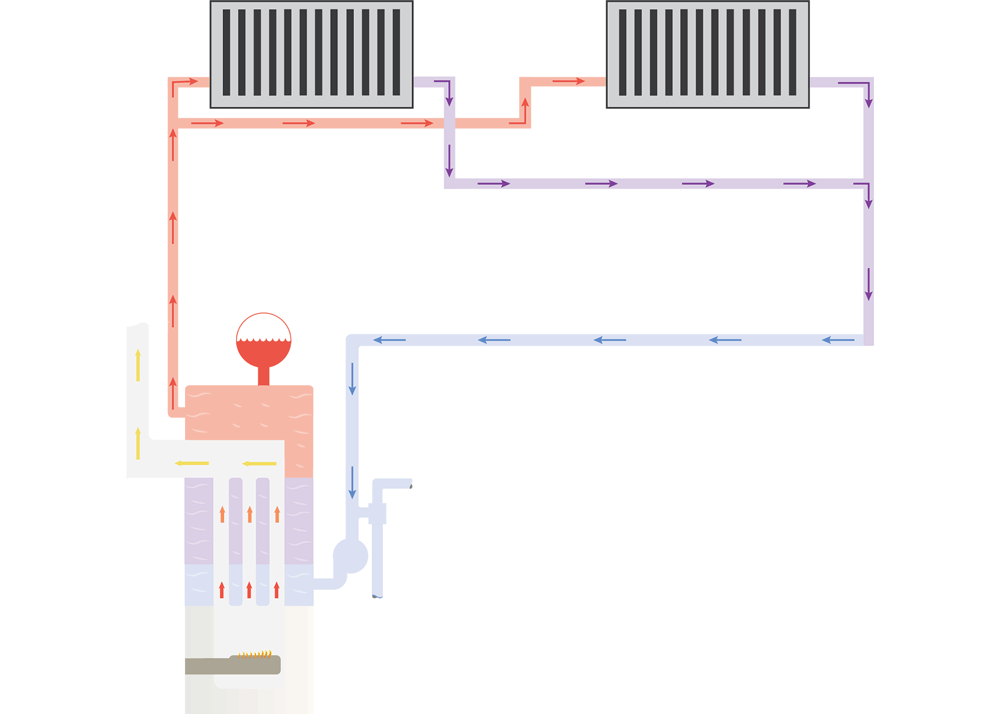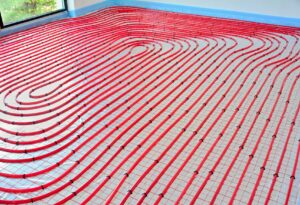Boiler Claims 101: The Basics of a Residential Boiler
Each winter, homeowners are reminded of the importance of their boiler systems, particularly if a system isn’t working as it should. As boiler claims begin to appear on adjusters’ desks in the colder season, it’s important to understand the basics of these systems and how they work.
What Is a Boiler?
Boilers are hydronic heating systems, meaning they use water to transfer heat. This type of system has many benefits, one of which is maintaining more consistent temperatures. Boilers are also typically more efficient than forced-air systems and require no ducts. This in turn keeps dust, allergens, and mold from being transmitted into the home’s air via the ductwork.
The boiler sends heated water to the terminal units (radiators in this example). The water transfers heat to the air and then returns to the boiler, where the cycle is repeated.
Understanding the Differences Between Natural Gas and Oil Boilers
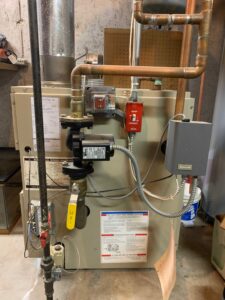
Oil boilers, on the other hand, require a large onsite tank that stores anywhere from 200 to 1,000 gallons. Oil is often used in areas where natural gas is not available.
Delivering Heat Through Different Types of Terminals
To provide heat to a conditioned space, a hydronic system heats water and distributes it through the sealed pipes and into the terminals throughout the property. Three main types of terminals are commonly found in residential properties.
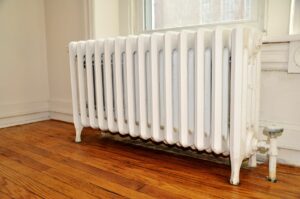
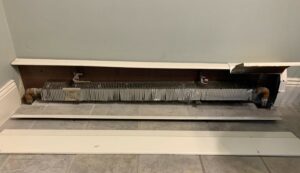
An underfloor hydronics system is another type of boiler terminal, although less common than radiators or baseboard registers. Here, water is brought up from the boiler and delivered through the individual pipes located on top of the slab or subfloor. The pipes are covered by the finished flooring and produce an even, radiant heat that rises from the floor. The biggest disadvantage to this type of hydronic system is the ability to easily diagnose a pipe leak.
An underfloor radiant heat system
Common Types of Boiler Losses
Boilers can encounter significant (and costly) issues, particularly during the winter months. It’s critical for adjusters to work closely with a trained technician to diagnose and repair all issues that may occur with a hydronic system, as the slightest oversight can create dangerous situations.
Freeze Damage
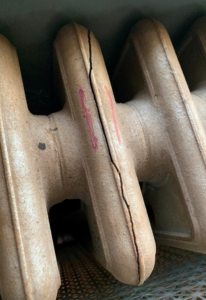
Puffback
Puffback can occur when a boiler doesn’t properly ignite and allows gas or oil vapors to build up within the combustion chamber. When it does eventually ignite, the excess fuel can cause anything from a small amount of smoke to a mess of smoke and soot, which is then released into the area surrounding the boiler. In rare cases, smoke and soot can also travel up the piping along with the heat that continues to circulate throughout the home.
Low Water Cutoff Failure
A common boiler issue is a failure in the low water cutoff switch, which can occur due to either a lack of regular maintenance or age-related wear and tear. The cutoff switch ensures that the boiler does not heat up without an adequate amount of water. If the boiler runs without enough water, it could crack the heat exchanger or the combustion chamber.
While these low water cutoff devices come in both electrical and mechanical varieties, the mechanical switch is more likely to fail prematurely. One common reason for this failure is that the float mechanism sometimes becomes waterlogged, which then sends a false negative indicating that there’s not enough water in the system. This in turn automatically shuts off the system.
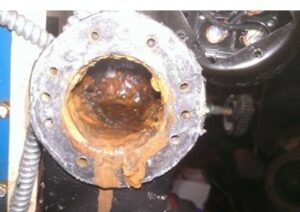
High Voltage Surge
Another regular failure with hydronic systems is high voltage surge, since boilers are composed of a significant number of electronic components. You always need a licensed technician with the proper testing equipment to diagnose and fix any high voltage surge damage to a system.
Copper Theft
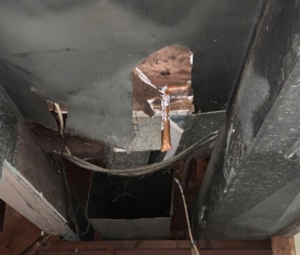
Water Damage
Water damage can be disastrous to a boiler; it’s therefore critical that a full evaluation is performed when a boiler is exposed to water for any period of time. Following a water loss, the boiler’s electrical components, the burner, and even the combustion or heat chamber can have a myriad of damages.
HVACi Takes the Guesswork Out of Claims
Boilers are a crucial part of any home, and they’re made up of many parts that need to be regularly maintained and inspected. In the event of a claim, it’s essential that a trained technician evaluates the entire system and situation prior to any settlement discussions.
The HVACi team has the expert skills to fully investigate and diagnose a boiler’s exact failure to give insurance professionals a detailed report that provides recommendations for repairs and replacements and cost estimates. Submit your boiler assignment to settle your claim quickly and accurately.


